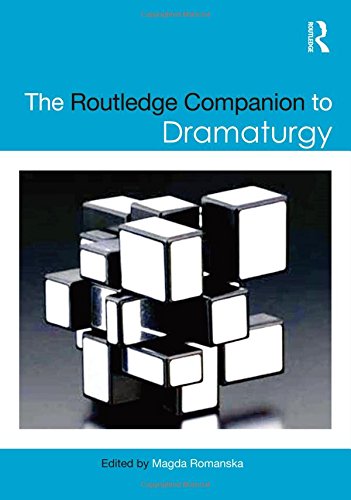

Most ebook files are in PDF format, so you can easily read them using various software such as Foxit Reader or directly on the Google Chrome browser.
Some ebook files are released by publishers in other formats such as .awz, .mobi, .epub, .fb2, etc. You may need to install specific software to read these formats on mobile/PC, such as Calibre.
Please read the tutorial at this link. https://ebooknice.com/page/post?id=faq
We offer FREE conversion to the popular formats you request; however, this may take some time. Therefore, right after payment, please email us, and we will try to provide the service as quickly as possible.
For some exceptional file formats or broken links (if any), please refrain from opening any disputes. Instead, email us first, and we will try to assist within a maximum of 6 hours.
EbookNice Team

Status:
Available4.4
13 reviewsDramaturgy, in its many forms, is a fundamental and indispensable element of contemporary theatre. In its earliest definition, the word itself means a comprehensive theory of "play making." Although it initially grew out of theatre, contemporary dramaturgy has made enormous advances in recent years, and it now permeates all kinds of narrative forms and structures: from opera to performance art; from dance and multimedia to filmmaking and robotics.
In our global, mediated context of multinational group collaborations that dissolve traditional divisions of roles as well as unbend previously intransigent rules of time and space, the dramaturg is also the ultimate globalist: intercultural mediator, information and research manager, media content analyst, interdisciplinary negotiator, social media strategist.
This collection focuses on contemporary dramaturgical practice, bringing together contributions not only from academics but also from prominent working dramaturgs. The inclusion of both means a strong level of engagement with current issues in dramaturgy, from the impact of social media to the ongoing centrality of interdisciplinary and intermedial processes.
The contributions survey the field through eight main lenses:
Magda Romanska is Visiting Associate Professor of Slavic Languages and Literatures at Harvard University, Associate Professor of Theatre and Dramaturgy at Emerson College, and Dramaturg for Boston Lyric Opera. Her books include The Post-Traumatic Theatre of Grotowski and Kantor(2012), Boguslaw Schaeffer: An Anthology (2012), and Comedy: An Anthology of Theory and Criticism (2014).